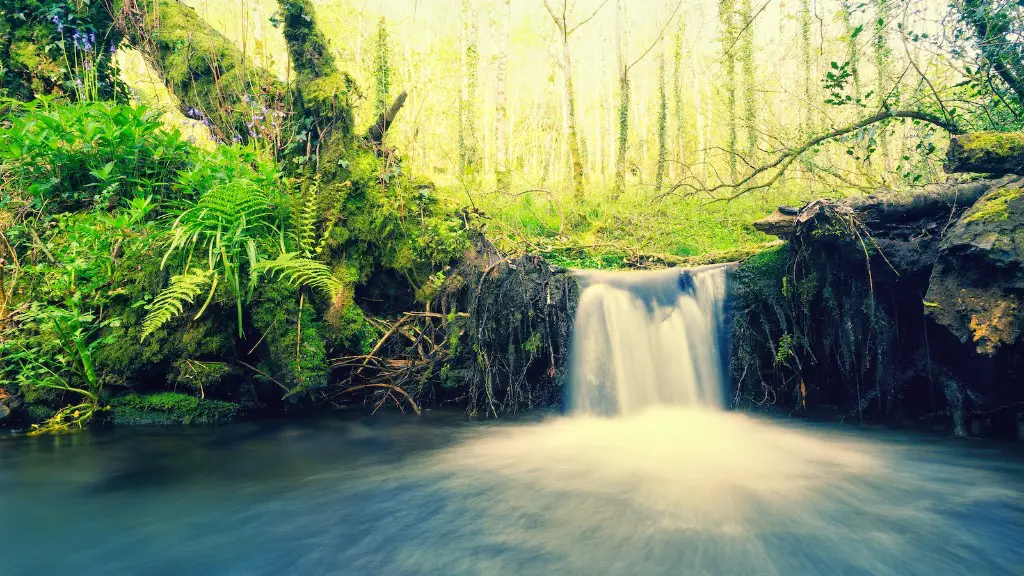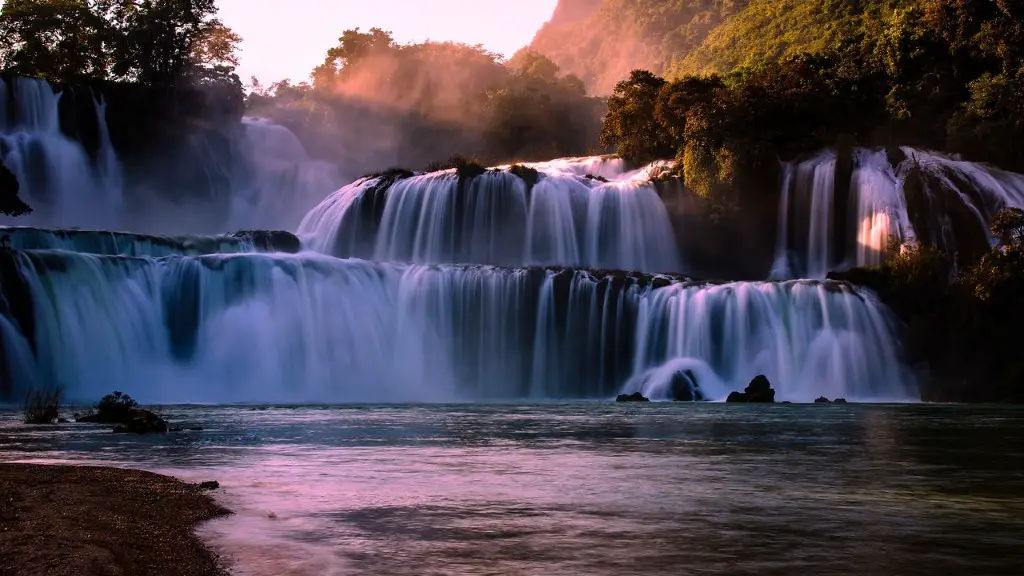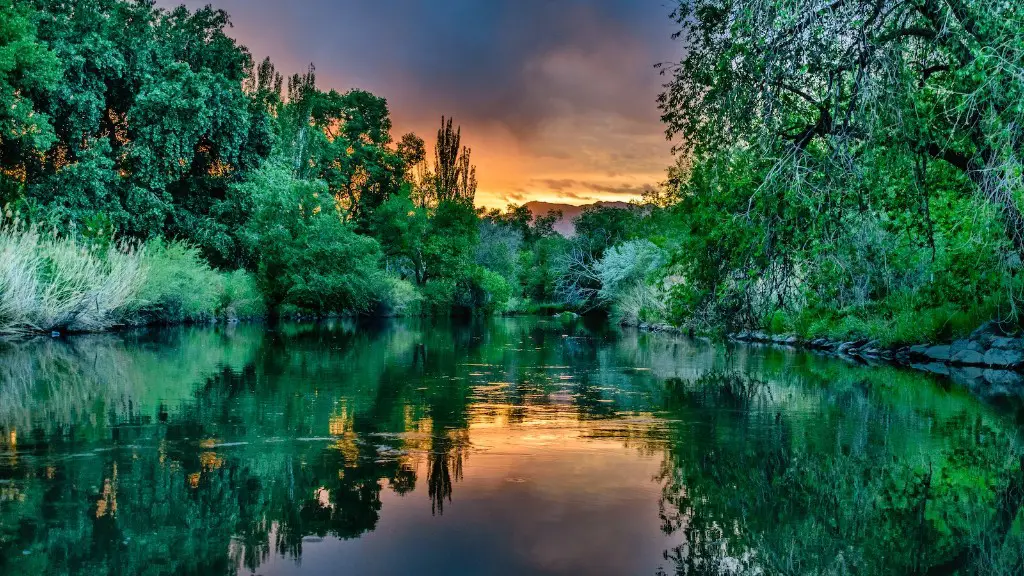The History of the Yangtze River
The Yangtze River, also known as the Chang Jiang, is the longest river in Asia and the third-longest in the world. It originates in the glaciers of the Tibetan Plateau and runs through nine provinces of China before emptying into the East China Sea. With an estimated length of 6,418km, the Yangtze is the most important river in the country in terms of delivering fresh water to the nation’s population.
The Yangtze River has long been a vital waterway in China. For centuries, it has acted as a transportation route and an important source of fish and other aquatic life. The river also played a major role in the development of ancient Chinese civilization, providing the people with a dependable source of food and transportation.
Since the 1950s, the river has been greatly used to provide energy and hydroelectric power. Large dams and reservoirs have been built along its length, including Three Gorges Dam, the world’s largest. These dams have provided up to 185.4 gigawatts of power, supplying more than 25% of the nation’s energy demand. In addition, the Yangtze has been extensively used as a transport route for goods and passengers, as well as providing a valuable water supply for agriculture and industry.
The Ecological Effects of the Yangtze River
The Yangtze River has faced a tremendous amount of environmental degradation in recent years. These threats have been caused by massive population growth, the influx of factories, deforestation, farming, and the construction of dams and hydropower plants along its length. These issues have led to severe water pollution, sedimentation and erosion, habitat loss, and threats to endangered aquatic species such as the Chinese sturgeon.
The damming of the Yangtze has also caused a decrease in its flow velocity and the amount of sediment it carries. This has caused problems with flooding and coastal erosion, as well as the loss of habitats for many aquatic creatures. In addition, water pollution from sewage and industrial chemicals has been a major issue for many years.
The Chinese government has taken some steps to reduce the impact of dams and other human-induced developments on the river. These include the establishment of protected areas and increased enforcement of environmental regulations. More recently, the government has focused its attention on controlling water pollution from industry and agricultural runoff.
The Importance of the Yangtze River for China
The Yangtze River plays an integral role in China’s economic, social, and cultural development. In terms of economic activity, the river provides an important source of hydroelectric power, transportation and irrigation, as well as a vital source of fish, which is an important part of the nation’s diet. In addition, the river and its tributaries are home to numerous wetlands and protected areas, which support a diverse array of plant and animal species.
The Yangtze also plays a pivotal role in Chinese society and culture. It is home to some of the country’s most important cities and most of the people living along its banks depend on the river for their livelihood. There are also numerous local festivals and events that take place along the river, making it a cultural focal point for many locals.
The Chinese government has placed a great emphasis on protecting and preserving the Yangtze River. This is in large part due to its importance to the nation’s economic, social, and cultural development. As such, the government has implemented numerous policies and programs aimed at improving the river’s health and sustainability.
Water Pollution along the Yangtze River
The Yangtze River has been plagued by severe water pollution in recent years. Domestic and industrial waste, agricultural runoff and the discharge of untreated sewage are among the major sources of water pollution. This pollution has resulted in a decrease in water quality and an increase in toxins, diseases, and other environmental problems. In addition, water pollution has caused a decline in fish populations and a decrease in the amount of aquatic life in the river.
The Chinese government has taken steps to address water pollution along the Yangtze. The most notable of these is a “river chief” system, which places local people in charge of reporting and remedying water pollution. In addition, new regulations and policies have been implemented in an effort to reduce water pollution from industry and urban areas.
Chinese Government Policies for the Preservation of The Yangtze River
The Chinese government has implemented various policies and programs aimed at preserving the Yangtze River, including the establishment of protected areas, improved environmental regulations and enforcement, and the implementation of new policies to reduce water pollution. The government has also launched initiatives to raise awareness of the importance of the river and the need to protect it.
In addition, the government has taken measures to reduce the impact of dams and other human-induced developments on the Yangtze. These include increased monitoring and review of projects, attempts to restore fish populations, and improved enforcement of environmental regulations.
As well as government-led initiatives, there are various civil society organizations and NGOs that are working to promote the preservation of the Yangtze River. These include organizations dedicated to protecting the river’s biodiversity, increasing its water quality, and raising public awareness of the importance of the river.
The International Significance of the Yangtze River
The Yangtze River is not only important to China, but also to the international community. Large amounts of sediment are transferred from its watershed to the oceans, playing a major role in global ocean health. In addition, the amount of freshwater it provides to China is a critical factor in the water security of the entire region.
Finally, the Yangtze River is an important source of inspiration and recreation for travellers. With its breath-taking scenery, rich history and diverse wildlife, the River provides a unique, incomparable travel experience.
The Future of the Yangtze River
It is clear that the Yangtze River plays a vital role in the lives of millions of people in China and around the world. The Chinese government is taking active steps to protect and preserve the river and its biodiversity, but there is still much progress to be made. All stakeholders, from the Chinese government to NGOs to everyday citizens, must work together to ensure that the Yangtze River is protected and preserved for future generations.
In order for this to happen, it is essential that efforts are made to reduce pollution, promote sustainable river use, and raise public awareness of the importance of the Yangtze. With these efforts, the Yangtze River can continue to provide an invaluable source of fresh water, energy, and a connection to China’s rich cultural heritage.




